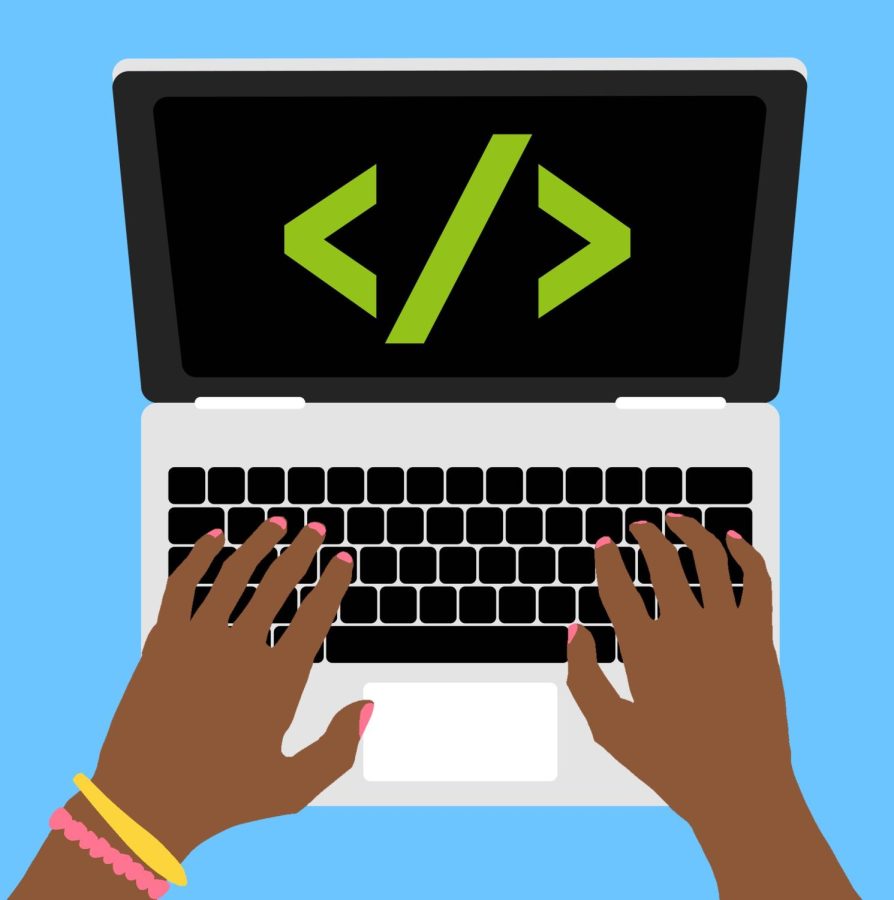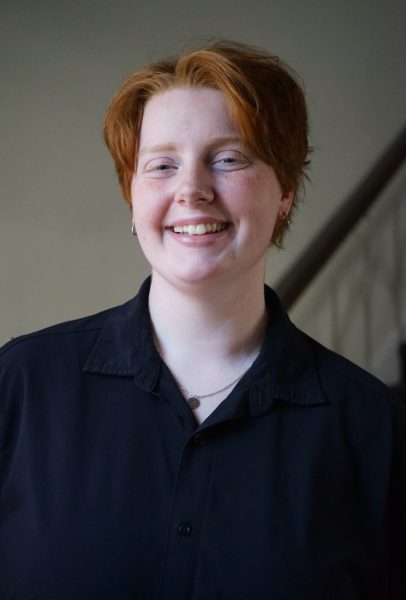Girls Who Code hosts kickoff meeting
April 13, 2023
The University of North Alabama has introduced a chapter of the Girls Who Code organization to create a supportive community for women in technology-based fields.
Girls Who Code is an international organization that aims to “close the gender gap in technology and to change the image of what a programmer looks like and does.” They unite female students interested in coding or other related activities to make strides toward this goal.
Morgan Burcham, a lecturer in computer science and information systems at UNA, has personal experience with the gender gap present in her field.
“Even when I was a student here, there just weren’t a lot of girls in computer science,” said Burcham. “When I started working in Huntsville, the same exact thing [happened]. My most recent job at DESE, it was a team of twenty engineers, and I was the only girl. I’ve been fortunate to not have any negative experiences – I’ve had a few, but not really – but it’s just different. You definitely notice it, and the culture’s just a little bit different when it’s all men, all the time, all around you.”
After Burcham came to teach at UNA, she noticed the same trend, where there were far fewer women in her classes than there were men. She observed that, because of this gap, her female students were more likely to feel heavier pressures in their studies.
“They don’t have a lot of other girls to talk to stuff about, so they do feel a little bit like outcasts in their classes sometimes and like they’re the only ones that aren’t getting the material when, in reality, every single person is struggling,” Burcham said. “They have a tendency to think that they’re not good enough, and they are.”
Once she noticed this trend and found out about Girls Who Code, she decided to start a chapter at UNA for female students in the field to have people they can talk to about these issues.
“I thought, they’re outnumbered,” Burcham said. “It would be nice if they had this one safe space where they can see that there are actually quite a few women in this. We might be scattered and at different levels in the degree, but there are some really cool women that are interested in coding. They’ll have a way to talk to each other, and it gives them a chance to feel like they’re the majority for once.”
Burcham decided to reach out to several of her female students who she had taught and spoken with before about issues like these. Through her outreach, she discovered that there was interest among women in the field surrounding the introduction of Girls Who Code.
Anshika, a computer science major and the vice president of the club, is a transfer student from a university in India. She was interested in helping Burcham start the club because of previous involvement in a similar organization.
“When I was at my home university, I was enrolled in Google’s Program, Women Engineers,” said Anshika. “Only 500 girls were selected from all around my country, and I was one of them.”
Audrey Richards, the club’s secretary, came in as a math major but changed her major to computer science after taking a class from Burcham. She thought starting the club was a good idea because of her experience being one of only a few female students in her classes.
After speaking with the students, Burcham went through the processes of registering to be an official student organization at the university, as well as getting the club certified through the Girls Who Code organization. After this was completed, the newly-elected officers were free to start planning for their introductory meeting.
This first gathering served as an interest meeting for the club. At the event, students got to enjoy free food and participated in a tee-shirt design competition. The winner of the competition, who was voted on by the club members, will receive a free shirt with their design, which will then become the Girls Who Code 2023-2024 club shirt.
The event had a turnout that was larger than expected: 21 women, all of whom were excited to meet other students like them.
“It went better than expected,” said Jahnavi Siddabathula, the co-president of the club. “The classroom that we were doing it in was full. We were happy to see that because we didn’t know how many people knew about the event. Stepping into that room before the event started, we were hoping that people showed up, and it was actually a great number. I think people liked it. I was meeting with some of them, and they were asking when the next event was.”
The club has other events planned for the future, such as outreach projects and panels of women in the field. They hope that, through getting so many young women involved, they can work to move the group forward by creating a space for them to work together.
“We should have a strong enough community that we will be working together on different projects,” Anshika said. “We’ll be moving shoulder to shoulder and holding each others’ hands to make each other strong, because in our field, technology is advancing day by day. It will be easier for us if we have a community that will be updating us.”
The members also hope that, with the club’s growth, those involved will have an opportunity to make friends within their major, something that is usually hard with the female students so spread out across various classes.
“As a student athlete and a [computer science] major, I wouldn’t have much time outside of class to get to know people, especially girls who are in my major,” Siddabathula said. “Talking to them, getting to know them and understanding what they’re going to do after gives me an opportunity to know people who are like me and have fun coding. I think it’s very common that people think coding is so boring or hard, and a lot of people drop out of it when they take one class, but it’s fun to get to know everybody and help them if they’re under-confident.”
All of this goes toward building interest in the field and getting more women interested in learning to code.
“By the time I graduate, over the course of four years, I’d like to get more people into computer science earlier on,” Richards said. “If we catch them too late, it’s a lot harder for them to change their major, so if you start promoting it as they’re applying to UNA, I feel like we can make them aware that it’s a field for women, too.”
Burcham also looks to the future, both for the classes she teaches and students’ future workplaces, and hopes for there to be more diversity in the field.
“Hopefully, one day I won’t walk into a classroom and notice how few girls there are,” Burcham said. “I would love to say that it’s just a class, instead of it being 90 percent boys and ten percent girls that are trying to fit in. I would love for that to be the outcome, which is what Girls Who Code is trying to do. They want to decrease that gender gap.”
Girls Who Code invites all women and non-binary people who are interested in coding to participate, regardless of their majors or career paths. Burcham encourages anyone who would like to participate to reach out and get involved.



